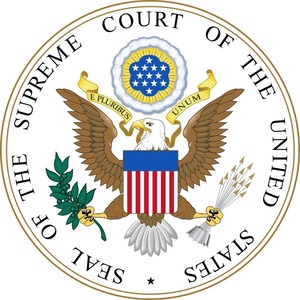Supreme Court to consider RFS point of obligation case on May 15

April 22, 2020
BY Erin Krueger
The U.S. Supreme Court is scheduled to consider whether it will review a challenge to the Renewable Fuel Standard point of obligation on May 15. Court documents related to the challenge were distributed to the Justices on April 22.
Valero Energy Corp. and the American Fuel and Petrochemical Manufacturers filed a petition with the Supreme Court Dec. 30, asking the court to determine whether the U.S. EPA is required to consider petitions to change the point of obligation under the RFS. The petition argued that the Clean Air Act’s RFS program requires EPA to undertake annual notice-and-comment rulemaking to determine annual renewable volume obligations (RVOs) for the U.S. transportation fuel supply and states that the first of three annual required elements is to determine the point of obligation.
“EPA admits that it initially placed the point of obligation on refineries and importers, but not on blenders, for reasons of administrative convenience,” Valero and AFPM said in the petition. “EPA has repeatedly refused to reexamine that placement in annual rulemaking, and it denied petitions for rulemaking seeking reconsideration outside the statutorily-mandated annual assessment.”
Advertisement
The petition asks the court to determine “whether the requirement that EPA ‘shall’ make a ‘calendar year’ determination of the ‘appropriate’ point of obligation requires EPA to consider in each annual rule whether the point of obligation remains appropriate,” and “whether EPA can evade the annual duty by partitioning the point of obligation into a one-time collateral proceeding that ignores key evidence, relies primarily on the agency’s own convenience, and claims more deference from a reviewing court than an annual rule would receive.”
The EPA filed a document with the court April 3 explaining that reviews of the point of obligation issue it has undertaken in the past show “that changing the point of obligation would not increase, and might decrease, the production or use of renewable fuels.” The agency has also determined that “the point-of-obligation rule did not disproportionately impact any particular group of refineries or provide windfall profits to unobligated blenders.” In addition, “EPA determined that moving the point of obligation to encompass blenders would have the counterproductive effects of greatly increasing the number of obligated parties and the complexity of the renewable-fuels program” and “found that changing the point of obligation would not increase energy security.”
Advertisement
Due to those determinations and other factors, the EPA is urging the Supreme Court to deny Valero’s petition for writ of certiorari.
Valero filed a response with the court April 20 claiming that the EPA’s position “ignores crucial statutory text and twists other provisions to accommodate EPA’s preferred outcome.”
Additional information is available on the Supreme Court website under Docket No. 19-835.
Related Stories
The USDA has announced it will delay opening the first quarterly grant application window for FY 2026 REAP funding. The agency cited both an application backlog and the need to disincentivize solar projects as reasons for the delay.
CoBank’s latest quarterly research report, released July 10, highlights current uncertainty around the implementation of three biofuel policies, RFS RVOs, small refinery exemptions (SREs) and the 45Z clean fuels production tax credit.
The U.S. EPA on July 8 hosted virtual public hearing to gather input on the agency’s recently released proposed rule to set 2026 and 2027 RFS RVOs. Members of the biofuel industry were among those to offer testimony during the event.
The USDA’s Risk Management Agency is implementing multiple changes to the Camelina pilot insurance program for the 2026 and succeeding crop years. The changes will expand coverage options and provide greater flexibility for producers.
President Trump on July 4 signed the “One Big Beautiful Bill Act.” The legislation extends and updates the 45Z credit and revives a tax credit benefiting small biodiesel producers but repeals several other bioenergy-related tax incentives.
Upcoming Events










